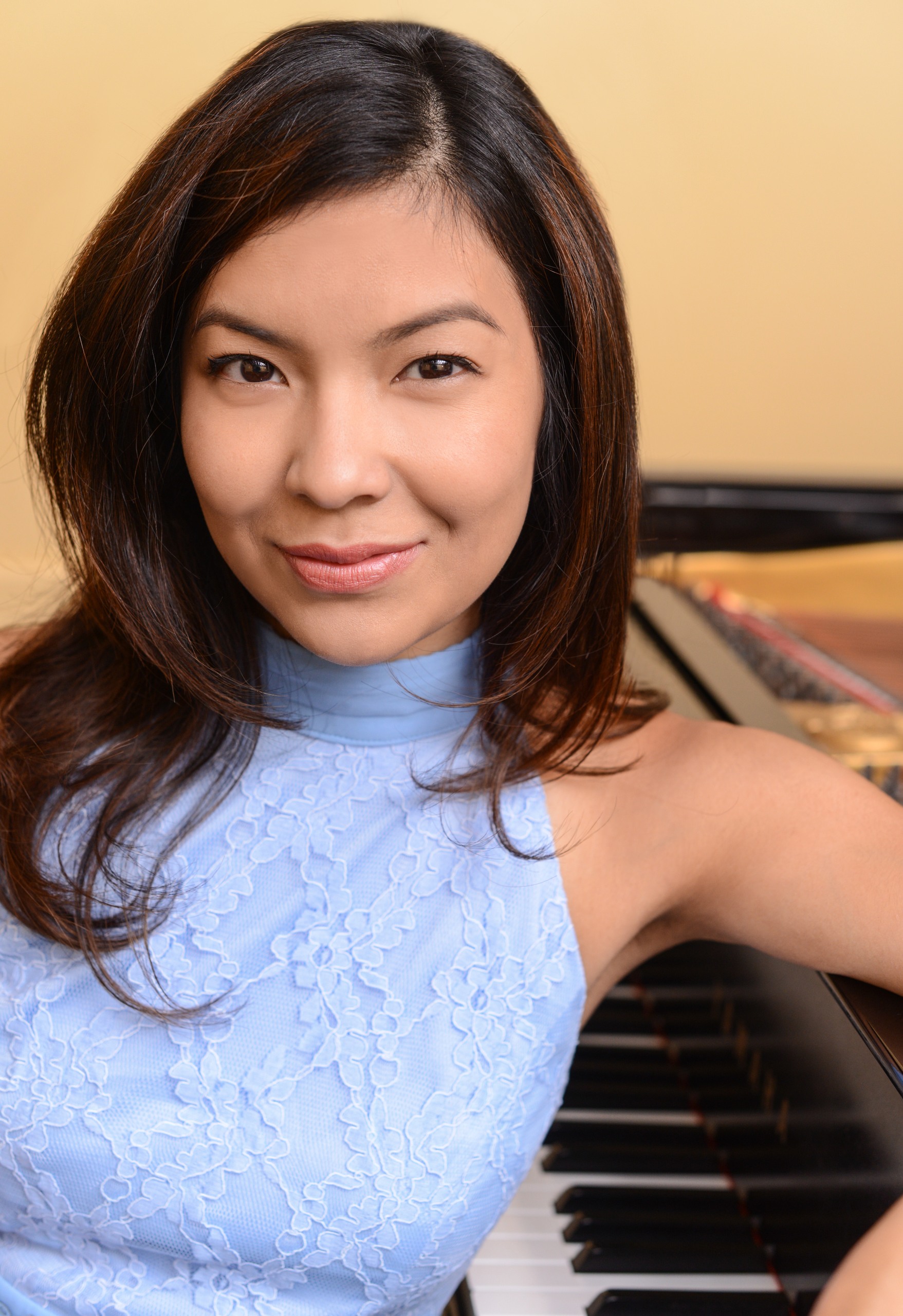
Described as a “poet with titanium fingers” by the Vancouver Sun, Melody Quah has performed extensively on stages across Asia, Europe, Australia, and North America, as well as her native Malaysia. Quah’s music career encompasses a wide range of activities—soloist, recitalist, collaborative pianist, chamber musician, educator, adjudicator, masterclass clinician, and music director.
A prizewinner of the 7th International Paderewski Competition held in Bydgoszcz, Poland, she has appeared in recital at Weill Hall at Carnegie Hall, and as chamber musician at the Kennedy Center’s Terrace Theatre. Quah has soloed with the Ku-Ring-Gai Symphony and Central Coast Symphony Orchestras in Australia, the Pomeranian Philharmonic in Poland, and the Richmond Philharmonic, Academy Philharmonic, Vancouver Philharmonic, West Coast Symphony and Vancouver Symphony Orchestras in Canada, as well as the Malaysian Philharmonic Orchestra.
Quah is also a proponent of diversifying the piano repertoire. In 2019 she commissioned Malaysian composers Adeline Wong and Tazul Tajuddin to write two solo piano works, which she premiered during her '20-'21 season. She recently premiered, Minakari, a solo piano work by Canadian/Iranian composer, Parisa Sabet.
Quah currently serves as Assistant Professor of Piano at the Pennsylvania State University. She recently served as Artist Faculty at the Nanyang International Piano Academy festival (Singapore). She has presented masterclasses at University Sedaya College International and Universiti Teknologi MARA (Malaysia), at Medan Musik School (Indonesia), and for institutions throughout the USA. She has also given masterclasses and lectures to students and teachers at the Canadian Yamaha Summer Camps in Toronto and Vancouver. She is an active adjudicator and presenter for the Music Teachers National Association and College Music Society. She currently serves as Vice President of the Pennsylvania Music Teachers Association.
Quah earned the Doctor of Musical Arts degree from the Peabody Institute of the Johns Hopkins University as well as graduate degrees from the Yale School of Music and The Juilliard School. She received her Bachelor of Music from the Vancouver Academy of Music and completed her high school education at the Australian Institute of Music in Sydney. Quah’s principal teachers included Boris Slutsky, Peter Frankl, Matti Raekallio, Lee Kum Sing, and Snezana Panovska.
Quah is a Yamaha Artist.
Goldberg Variations BWV 988 by Johann Sebastian Bach (1741)
The Goldberg Variations was the fourth part of Bach’s Klavierübung, a collection that included the six partitas, Italian Concerto, French Overture and German Organ Mass. In the first edition, this fourth part was entitled (in German), “Keyboard Practice, consisting of an Aria with diverse Variations for the Clavicymbal [harpsichord] with Two Manuals,” and was known as such until the nineteenth century. Johann Nikolaus Forkel writes that the Variations were commissioned by the Russian envoy to the Dresden Court, Imperial Count Hermann Carl von Keyserlingk, for his resident harpsichordist Johann Gottlieb Goldberg: “On one occasion the Count gave Bach to understand that he would like to have some clavier pieces for his Goldberg, which would be soothing and rather cheerful in character, and which might raise his spirits somewhat during his sleepless nights. Bach thought that he would best be able to work with this wish by composing variations, work which he had hitertho regarded as thankless in view of the unchanging nature of the underlying harmony.”[1] This seemingly trivial, anecdotal tale of the piece’s conception is somewhat bewildering to many who view it as one of the pinnacles of musical achievement. Doubts have been cast, however, on the plausibility of this account, for it is highly unlikely that Bach wrote this demanding work specifically for the young harpsichordist, who would have been only twelve or thirteen at that time. Regardless, Bach did stay in Keyserlingk’s house in Dresden in November 1741, allowing for the legitimacy of at least some particle of the story.[2]
The foundation of the Variations is a 32-bar bass pattern, heard 32 times over the course of the 32 movements (30 variations framed by identical Arias). Additionally, every third variation is a canon, beginning with a canon at the unison (var. 3) and expanding to a canon at the ninth (var. 27). The characters of the variations range from dance-like or introspective to declamatory or virtuosic. The virtuosic variations (usually preceding a canon) are notoriously difficult to execute on the piano since the piece was originally composed for an instrument with two manuals. Thus, the pianist has to navigate intricate hand-crossings that require a precise choreography of finger and arm movement. Notable variations also occur at structural points of the work. For example, variation 16, written in a French Overture style, clearly delineates the halfway-point of the entire work; variation 25, a sorrowful minor variation with astonishingly chromatic harmony occurs approximately three-fourths through; and variation 30, the jubilant Quodlibet that quotes two folk-songs, serves as the concluding variation before the return of the Aria.
Written by Melody Quah
[1] Johann Nikolaus Forkel. Ueber Johann Sebastian Bachs Leben, Kunst und Kunstwerke, Leipzig, 1802, p. 52.
[2] Christoph Wolff, preface to Johann Sebastian Bach, Klavierübung IV: Goldberg-Variationen = Goldberg Variations: Aria Mit Verschiedenen Veränderungen, BWV 988. 1. Aufl. Wien: Wiener Urtext Edition, 1996, 8.
Thanks for attending this performance. If you have enjoyed your experience, please consider donating to the College of Musical Arts in support of our students and programming. Donate online at bgsu.edu/givecma, or call Sara Zulch- Smith at 419-372-7309.
To our guests with disabilities, please indicate if you need special services, assistance or appropriate modifications to fully participate in our events by contacting Accessibility Services, access@bgsu.edu, 419-372-8495. Please notify us prior to the event.
Audience members are reminded to silence alarm watches, pagers and cellular phones before the performance. As a matter of courtesy and copyright law, no recording or unauthorized photographing is allowed. BGSU is a nonsmoking campus.
Updated: 03/12/2024 09:33AM
